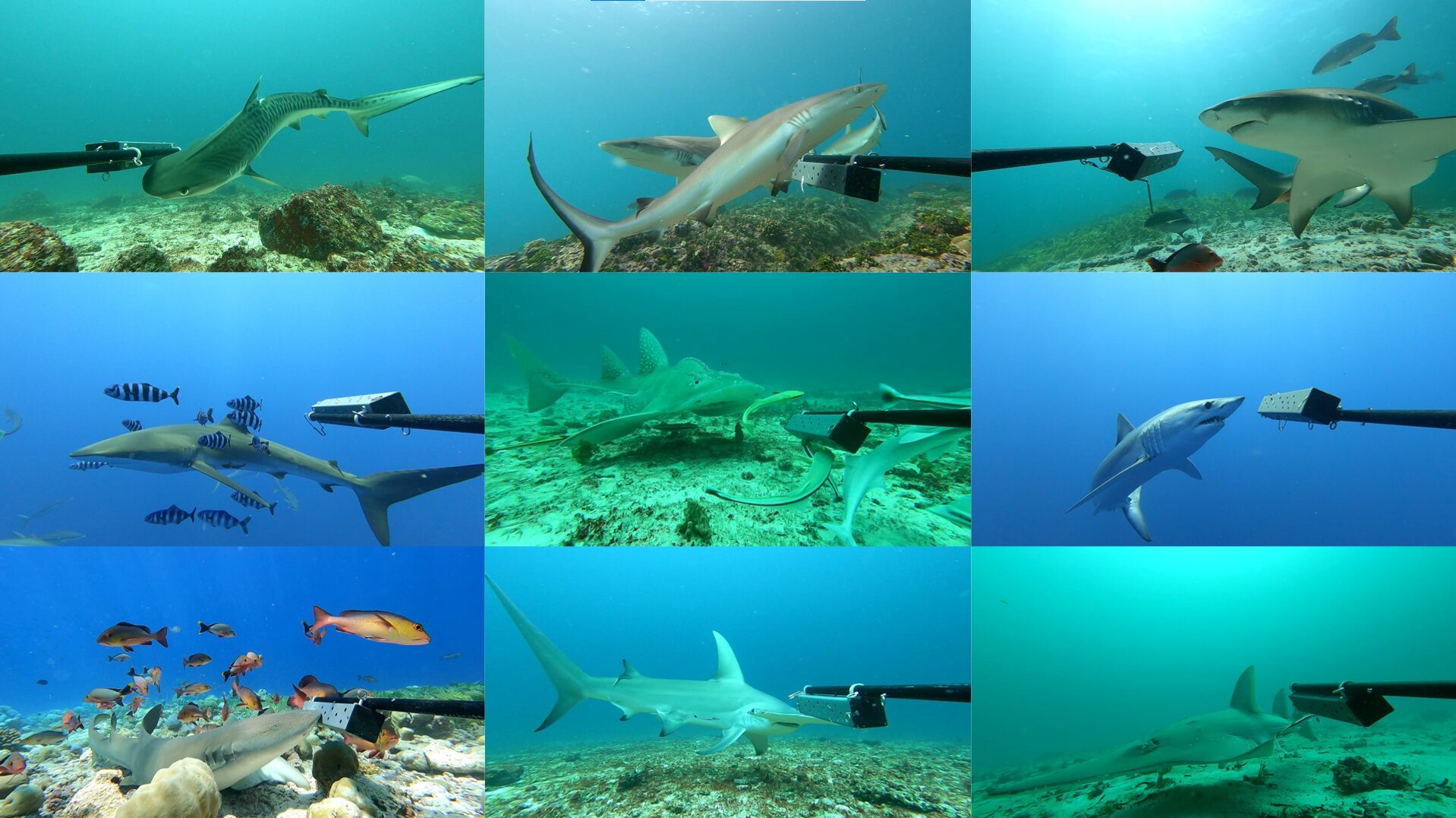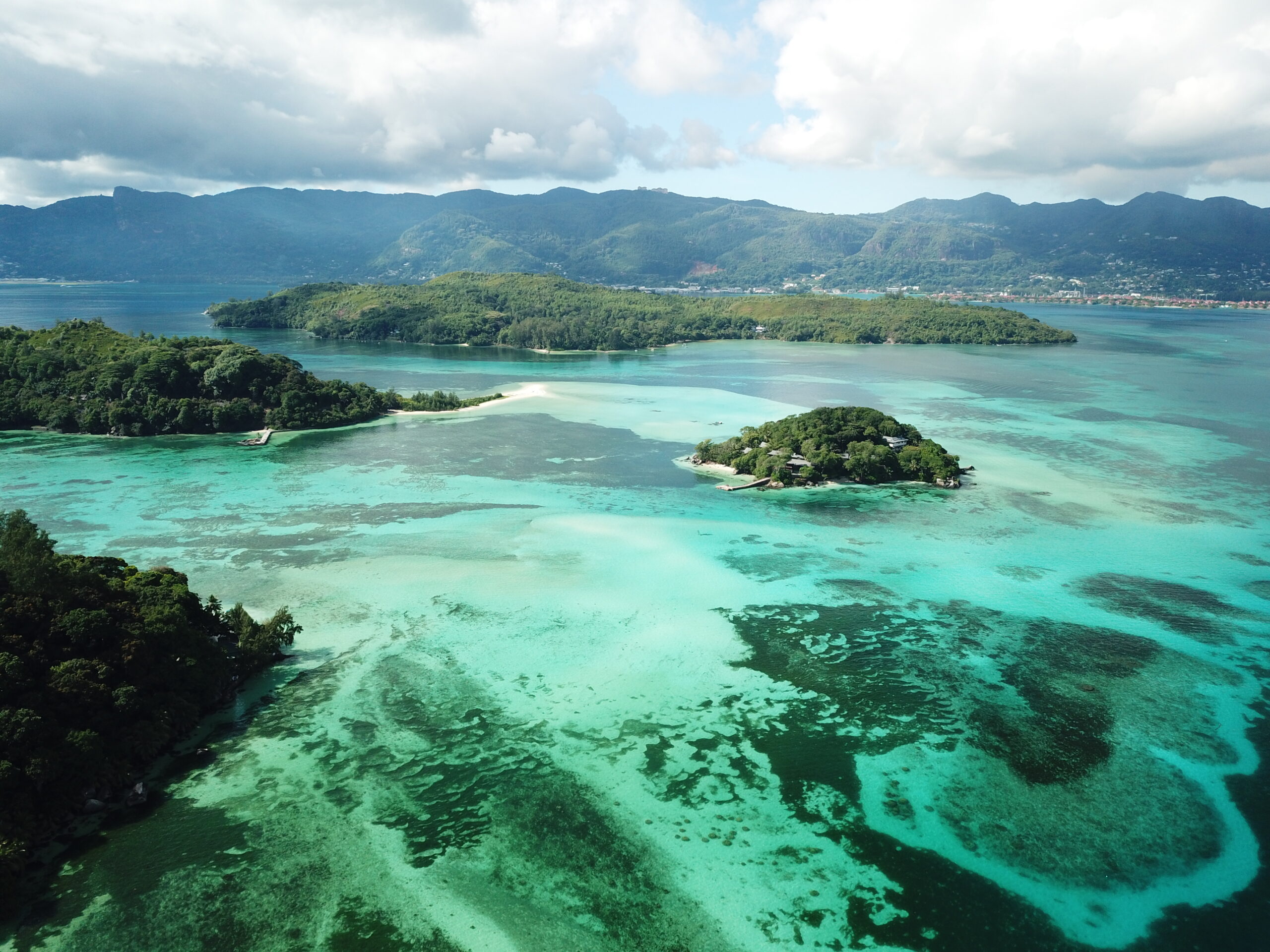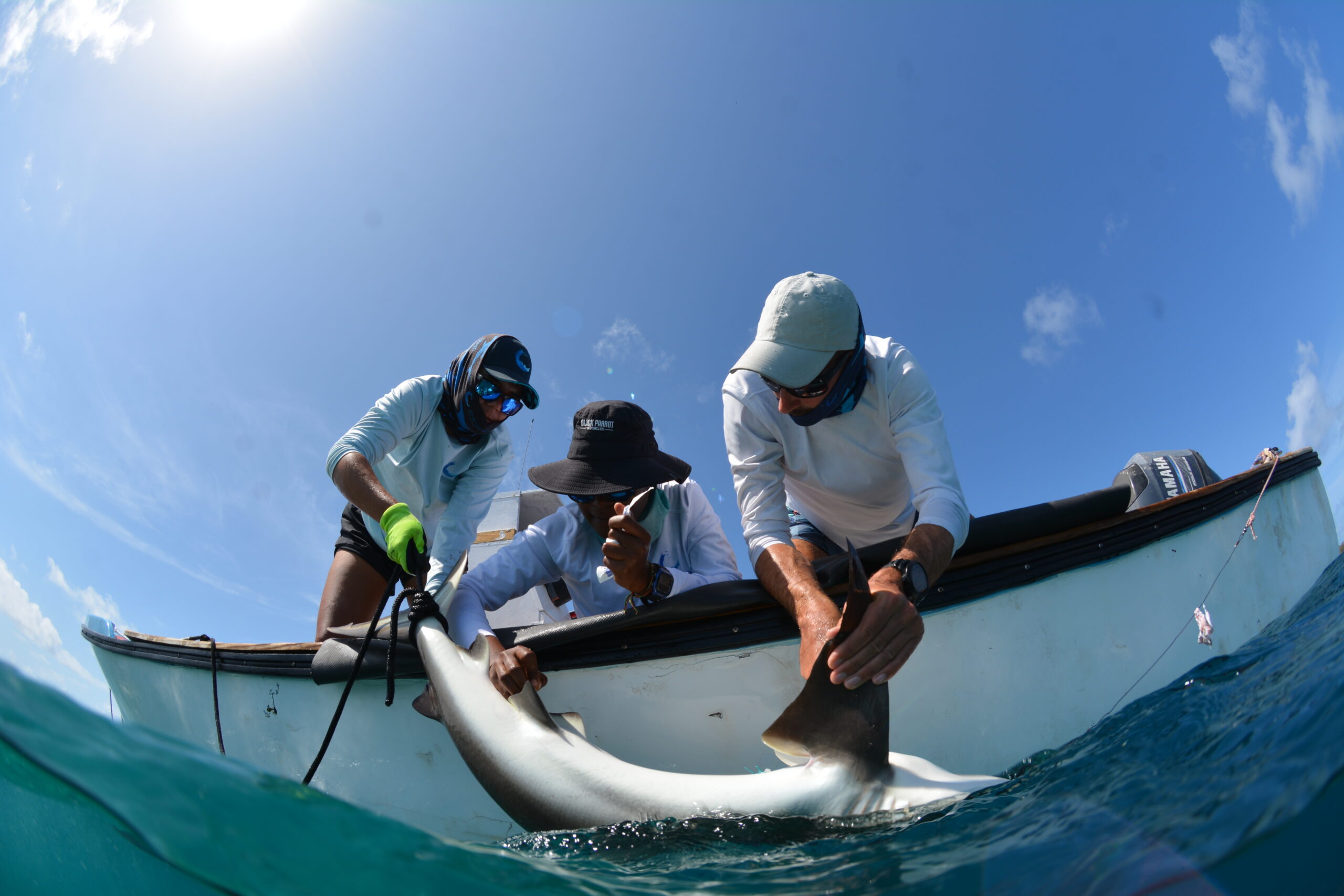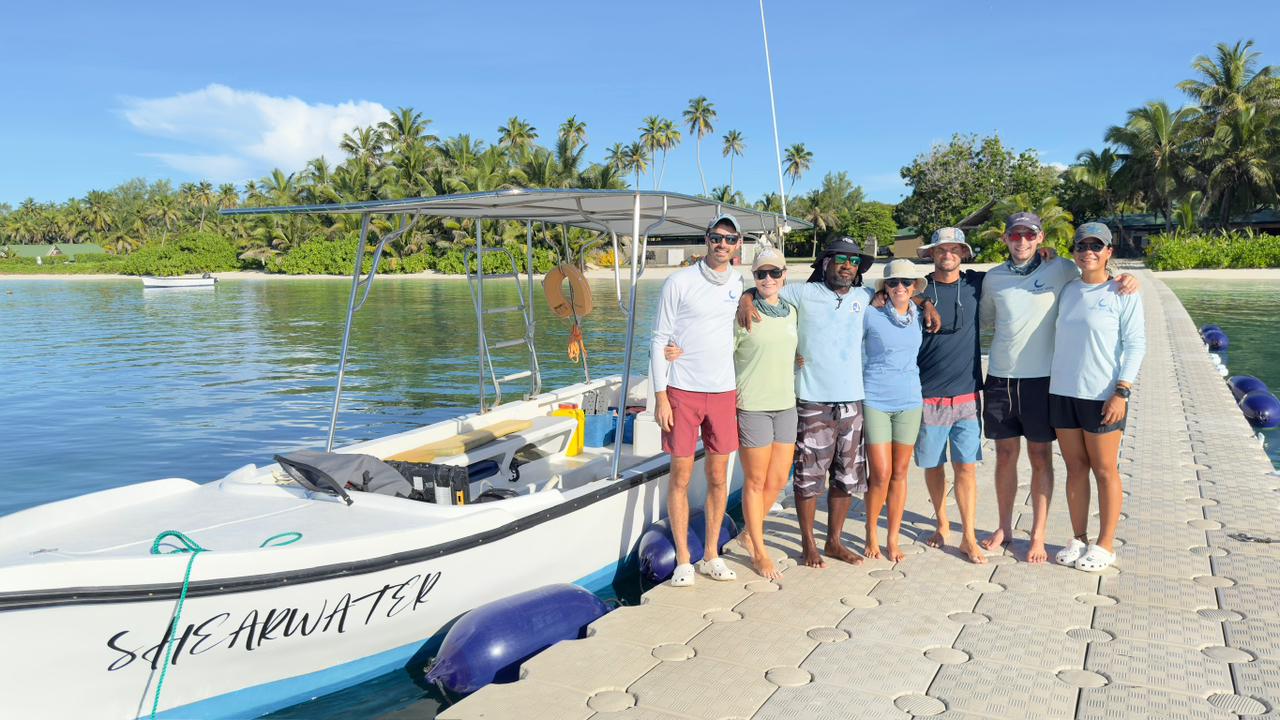Lasyans Reken – a sciencey Seychelles shark tale
Sharks, or ‘reken’ as the Seychellois call these charismatic ocean predators, roam the waters across Seychelles. At least 50 shark species call this island nation home, from juvenile sharks swimming in the shallow waters off pristine beaches to graceful silky sharks patrolling the pelagic waters far offshore. They are a common sight for ocean enthusiasts, yet surprisingly little is known about the behaviour of many of these species, particularly how they move within and between island groups. This knowledge gap stems partly from the remoteness of the Outer Islands, which makes research challenging, and partly from limited funding and expertise dedicated to studying sharks.

BRUVS snapshots from across Seychelles, including Northwest Mahé, the St. Anne Marine Park, the cousin Island Special Reserve, D'Arros and St. Joseph Atoll, Alphonse and St. Francois. Images © Save Our Seas Foundation D'Arros Research Centre
Over the past two years, my research has geographically expanded from its localized beginnings at the Save Our Seas Foundation D’Arros Research Centre (SOSF-DRC), where the core of my PhD research takes place. We’ve expanded to collect data on shark assemblages and movements at several island groups across Seychelles. We deployed baited remote underwater video systems (BRUVS) around the Inner Islands, from Northwest Mahé to the St. Anne Marine Park, and the Cousin Island Special Reserve. And as far south as the Alphonse Island Group, located off of the Amirantes Bank about 200 km south of the SOSF-DRC. Close collaboration with four local NGOs allowed us to train more Seychellois scientists in our methods, creating new opportunities for sharing our findings and underwater highlights with a wide range of audiences—from undergraduate students at the University of Seychelles to tourists exploring the Outer Islands.

The oldest marine park in the Indian ocean, St Anne Marine Park, where project leader, Nico Fassbender, deployed the DRC BRUVS with the help of the Marine Conservation Society Seychelles. Photo © Nico Fassbender | Save Our Seas Foundation
I cannot overstate the vital role that the SOSF-DRC has played in making all this possible. The team’s ongoing support, encouragement, and positive, can-do attitude have been invaluable. The BRUVS systems, used as part of my PhD SOSF Keystone Project, have travelled far and wide across Seychelles, collecting close to 1,000 hours of underwater footage since we first deployed them in 2022. We have filmed hundreds of sharks and counted nearly 100,000 fish, with many more deployments planned in the coming months.

A faecalDNA sample being collected from a grey reef shark by Research Officer, Dillys Pouponeau, which are a part of Nico's phd. They are used to understand the diets of the sharks that are tagged. Photo © Nico Fassbender | Save Our Seas Foundation
Earlier this year, Rob Bullock and Ellie Moulinie from the SOSF-DRC joined me on Alphonse Island to launch a new shark research project in collaboration with the Alphonse Foundation, Island Conservation Society, and Blue Safari Seychelles. We tagged 25 sharks from four different species and invested countless hours training the island research team, further building capacity and strengthening the foundation for locally led shark conservation efforts.

The Alphonse science team (or team shark), who lent their time and expertise to help the field trip and train the team in shark tagging! Photo © Ellie Moulinie | Save Our Seas Foundation
Globally, sharks face numerous threats, from overfishing to the impacts of climate change. In the absence of a shark management and conservation plan in Seychelles, the data we collect will be crucial in filling knowledge gaps for these vulnerable predators. I truly believe that collaborative, locally-led research is the key to ensuring the future of shark conservation in Seychelles. By combining local knowledge with academic approaches, Seychelles can set an example for effective, community-driven conservation that can resonate across the world.
